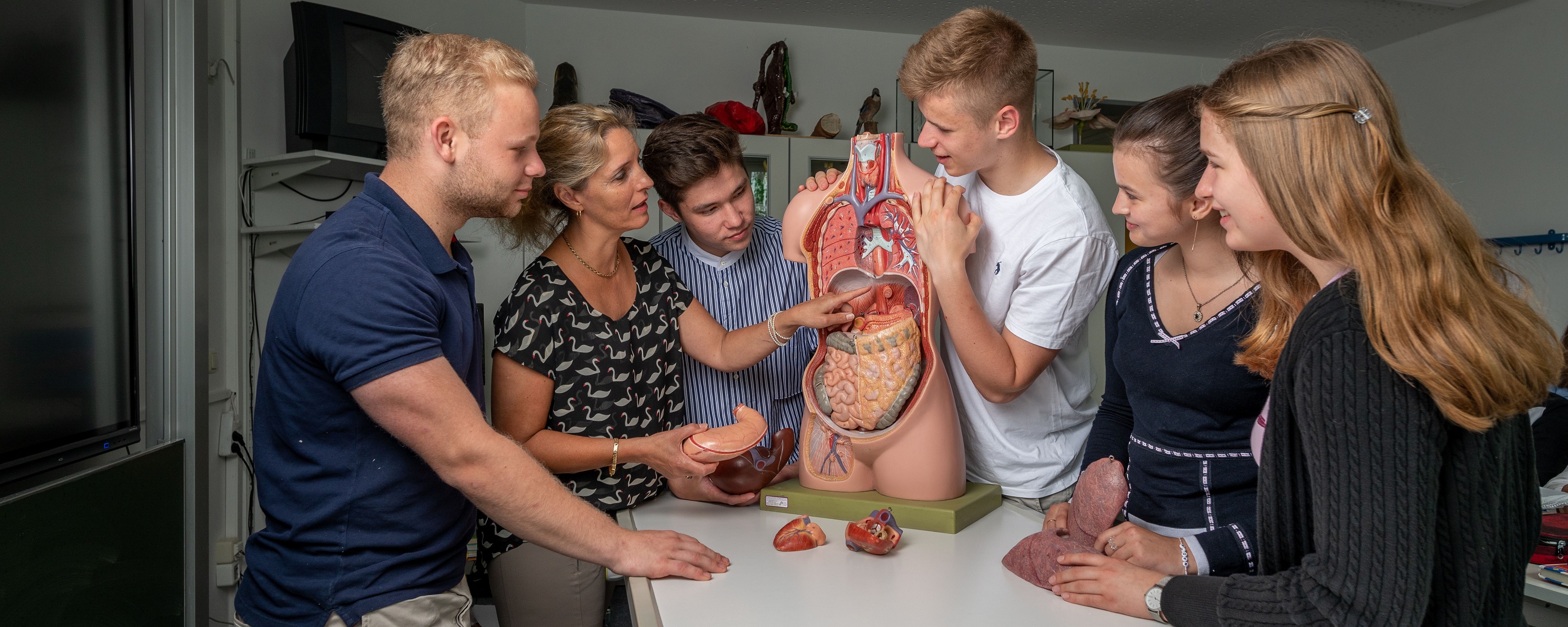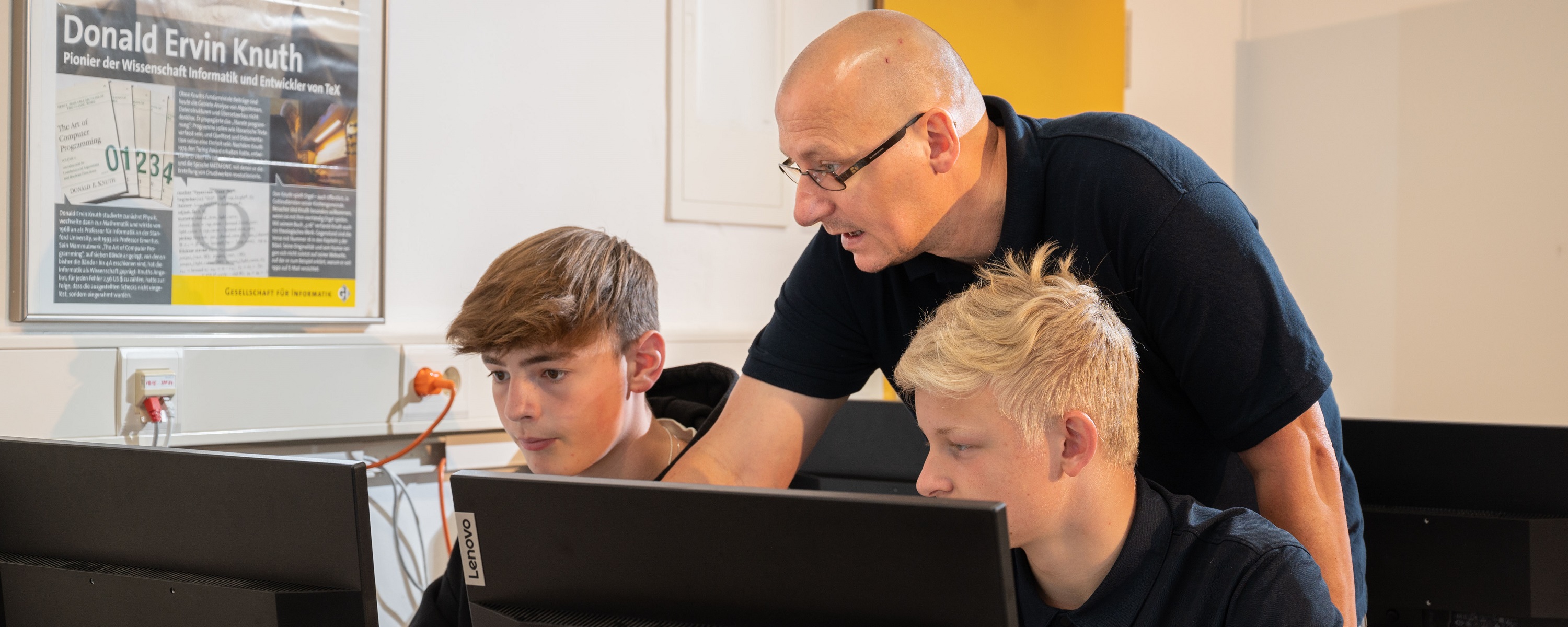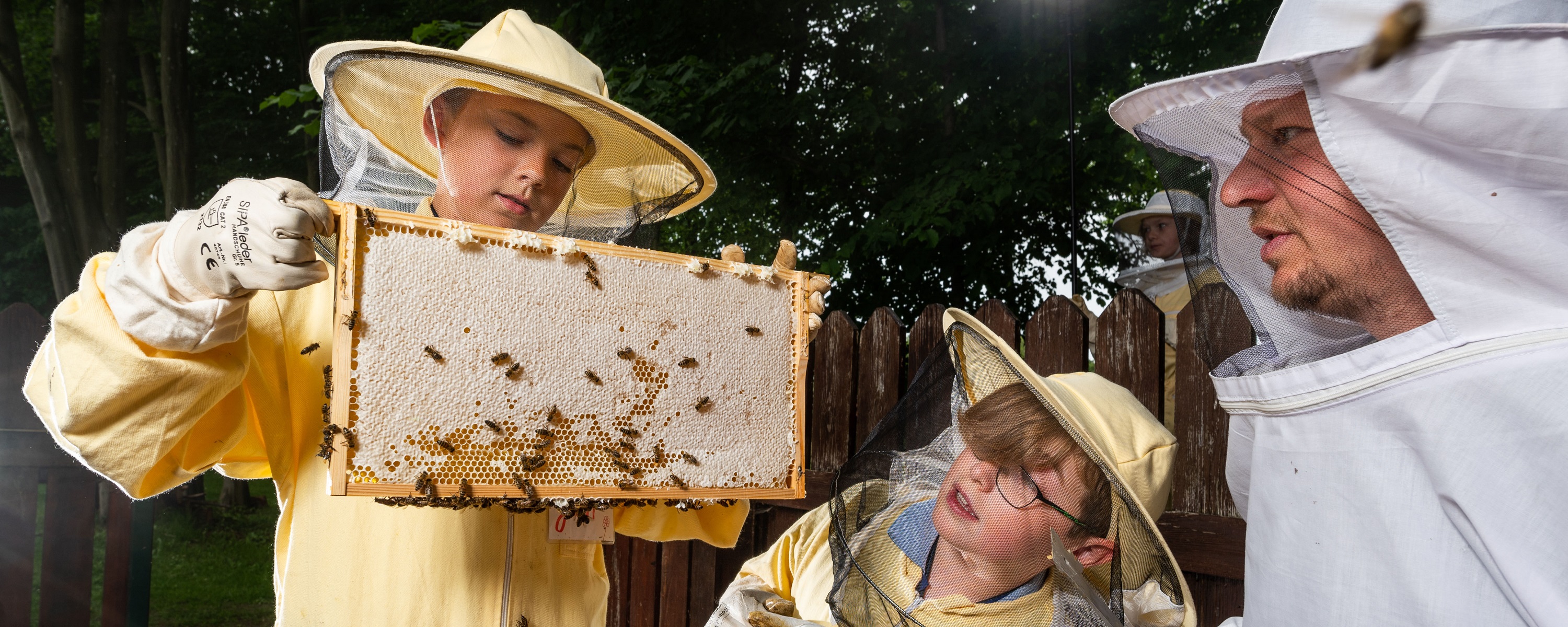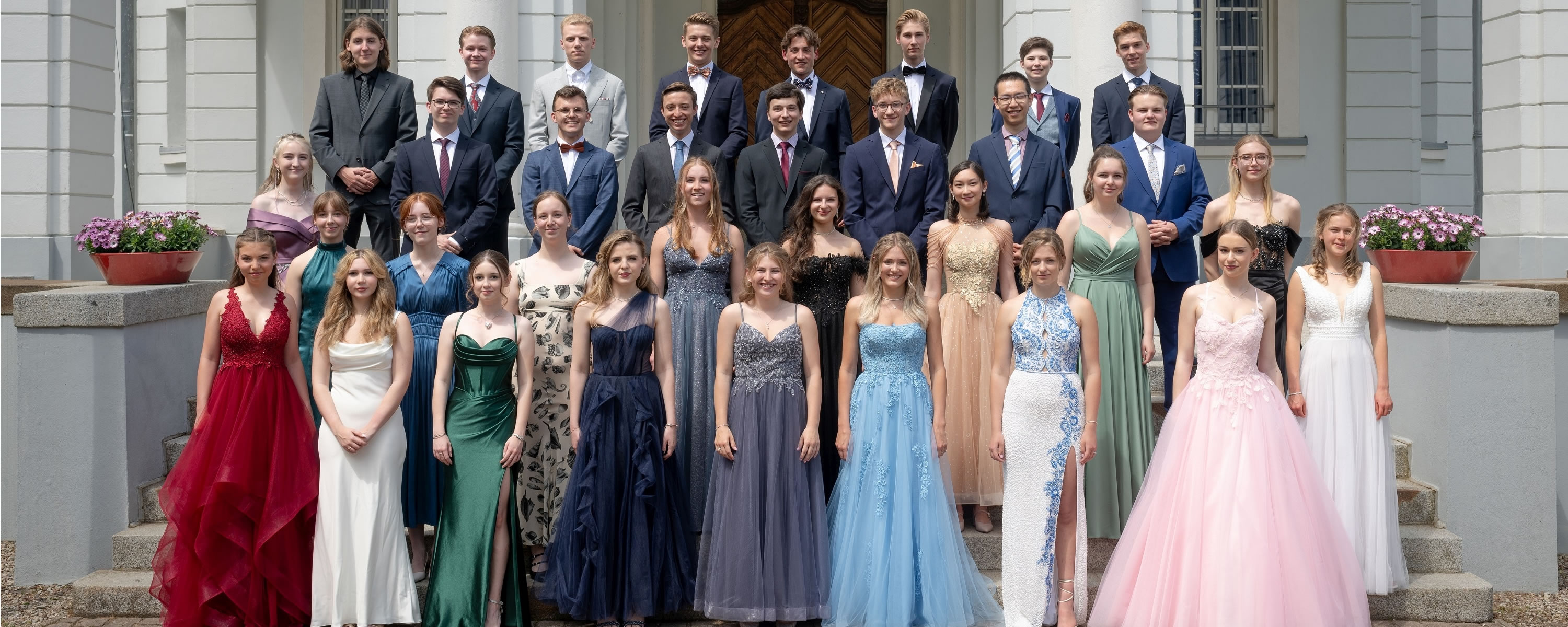The Flying Fish Theater at Schloss Torgelow
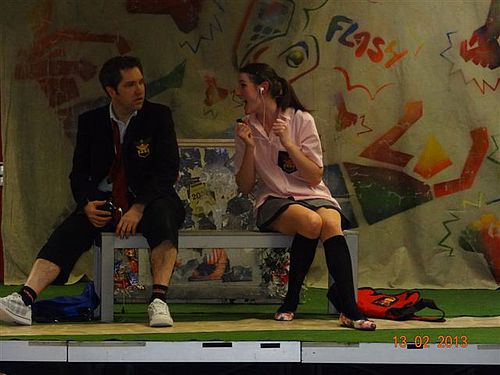
On Thursday, 14 February 2013, a play about the Muslim – Jewish conflict delivered by the Flying Fish Theater from London was performed at Schloss Torgelow.
An English student, called Patrick, probably of the same age as we are, tried to hide after he was beaten up by some people from his school. He was badly injured, his clothes were ripped apart and he appeared mistrustful and deranged.
Then a girl joined him. They did not seem to know each other. She tried to have a conversation with him, which he rejected. God willing, the media leading them to talking to each other was music. Patrick was still quite withdrawn, but slowly told the girl, Hannah, the story of his misery.
He was a victim of Happy Slapping. That crime is comparable to bullying, but has the additional quality that the victims are recorded with cellphones, which in turn takes these cruel events to a virtual level. Furthermore, those selected to fall prey to Happy Slapping are chosen randomly. A different taste of music or clothing can be enough to qualify.
Subsequently, Patrick and Hannah got to know each other better, even though the increasing harmony between them was interrupted by some conflicts caused by the prejudices they harbored, for example regarding males and females. But short sessions of music poured oil on troubled waters and they got along again. This definitely taught us new forms of solution oriented approaches to problems.
During further conversations it became apparent that Patrick was a Muslim and Hannah a Jew. The prejudiced fighting starts again based on everything their parents and even grandparents had taught them about the “opposing” religion. But actually Hannah and Patrick could repeatedly not find the deeper sense in this fight because only a couple of minutes ago they would have talked to each other like friends. Consequently, both decide to stop this conflict. After uttering a load of foul language, they judged that the roots of sectarian violence and its development were related to Happy Slapping and that all that was pointless.
No offence: Objecting to biased traditional conflicts is crucial to living in a modern and enlightened society. The message this play tried to deliver to us is definitely honorable, but an unconvincing smack remains. Bringing one of the most long-lasting issues of our world down to the level of bullying at school – not to lower the brutality of Happy Slapping – is a simplification which appears to be inadequate.
But for apart of all criticism, this play has confirmed that not everything that sounds good is actually any good at all. The play conveyed an unintended doctrine which showed us that we need to form an opinion by looking behind the curtain to recognize the truth. Not every conflict can be stopped merely by deciding to do so. We learned that we need to get actively involved with such a problematic in order to deal with it successfully.
Overall, the play was not only entertaining due to the display of affection and bad language. Even though the simplifications and the final talk with the actors, the latter consisting of the most non-challenging small-talk questions imaginable, did not instill the need for an intellectual exchange of ideas, even this can obviously be useful because the conflict addressed by the play does require to be dealt with.
By Martin Röchow




